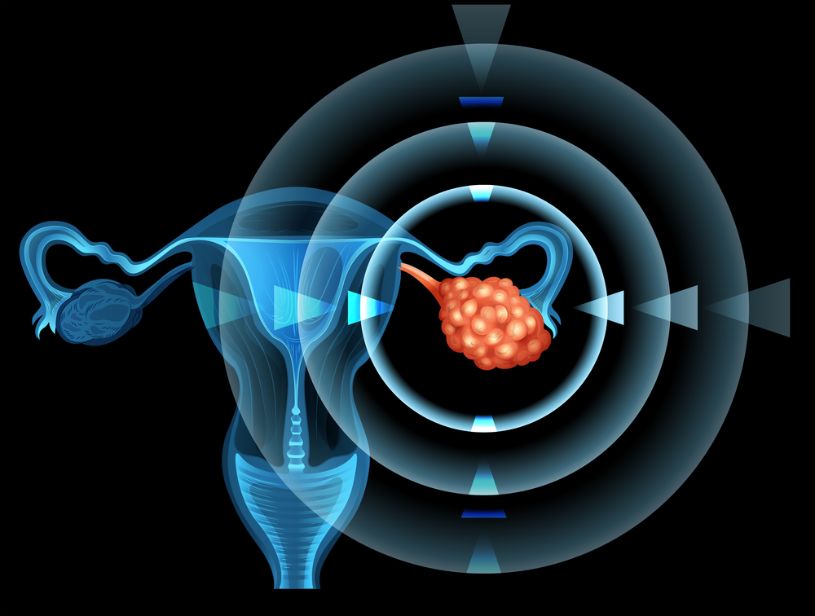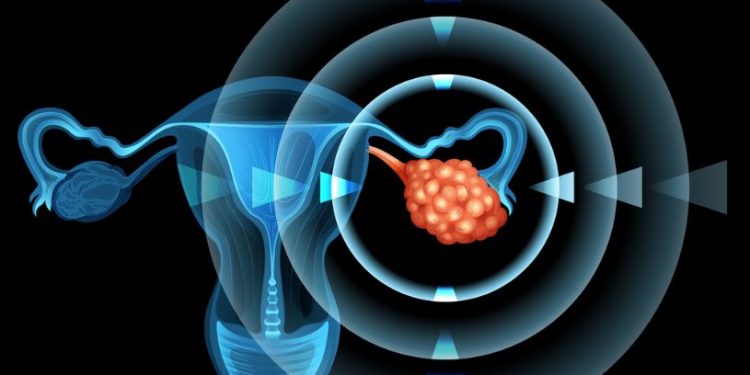An ovarian cyst is a fluid-filled sac in or on an ovary. The ovaries are part of the female reproductive system and produce eggs and hormones. Most ovarian cysts are harmless and go away on their own without treatment. But some can be serious. If a cyst bursts or if the pressure on an ovary from it cuts off its blood supply (rupture), you could have severe pain in your lower abdomen, nausea and vomiting, and shock. This is rare.
The most common type of ovarian cyst occurs when a woman’s follicle, the organ that releases an egg each month, swells up with extra fluid and then shrinks after an egg is released. This is called functional ovarian cyst and most of these are noncancerous. A cyst can also form during early pregnancy and help support the pregnancy until the placenta forms. Cysts can also develop if hormone-based medicines used to treat menstrual periods or endometriosis cause problems with your ovaries.
Women of childbearing age should have regular pelvic exams, especially if they have symptoms such as spotting or heavy, irregular periods. This helps doctors diagnose ovarian cysts early and may prevent them from causing any symptoms or complications.

A woman who has a large, painful, or bleeding ovarian cyst should be seen in a doctor right away. The doctor may order a sonogram to see the ovary and cyst. The doctor may also want to do a blood test that measures the level of a protein called cancer antigen 125. High levels of this protein can sometimes be a sign of ovarian cancer.
If a woman has large or persistent ovarian cysts, she might need surgery to remove them. This can be done with a procedure called laparoscopy or with an open operation, which involves making a larger cut (incision) in your tummy. A slim, lighted instrument called a laparoscope is inserted into the tummy through this incision. The doctor can then look at the ovary and cyst and do a biopsy if needed.
In rare cases, a doctor might suggest removing one or both ovaries. This would trigger early menopause and mean that the woman can no longer get pregnant. But most doctors keep at least one ovary if possible, particularly in women who wish to have children in the future. Having one ovary can still be useful if a woman wishes to try in vitro fertilization or other assisted reproduction techniques.









